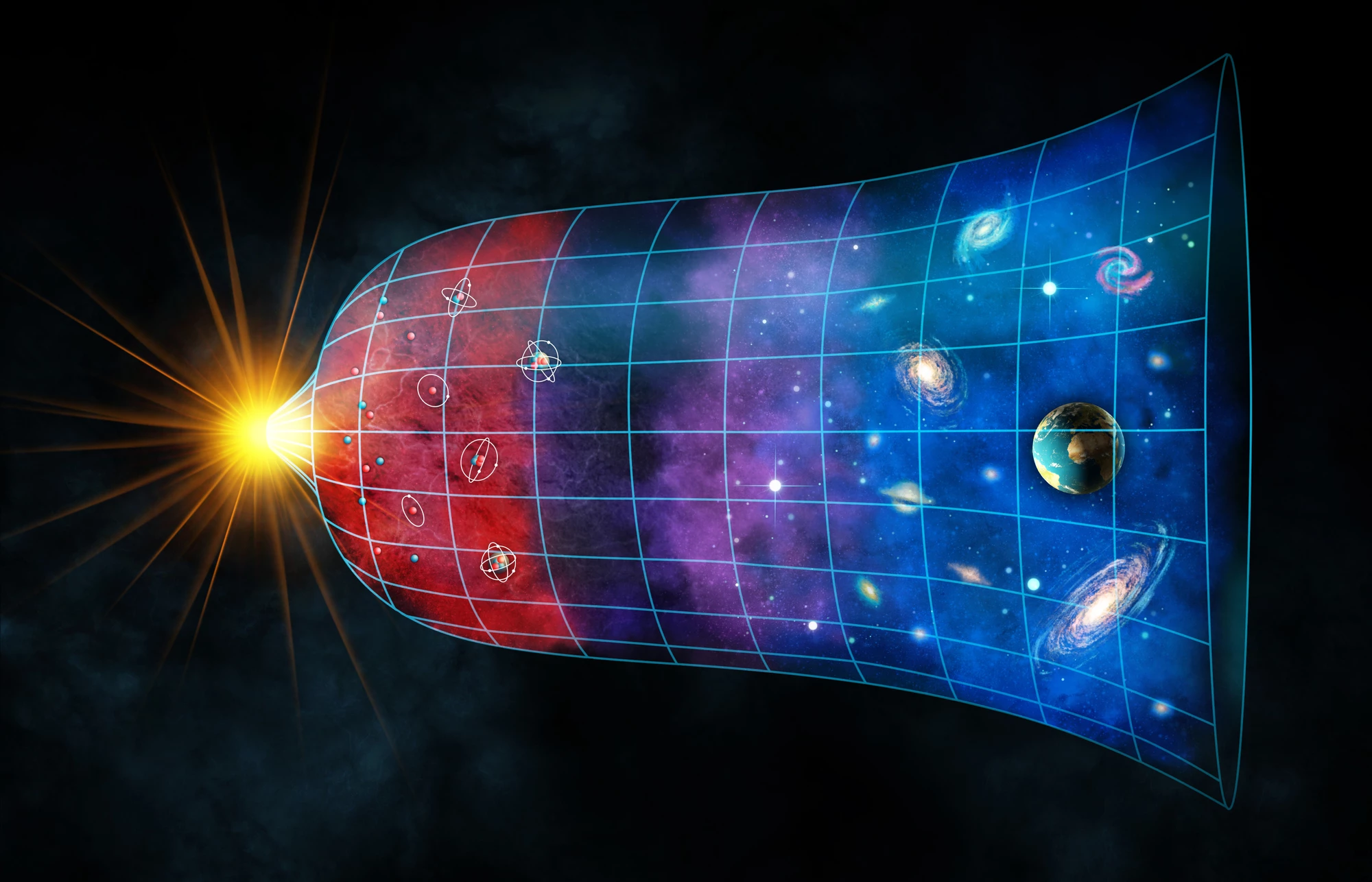The expansion of the universe is accelerating, but we’re not really sure why. The current best models give the driving force the placeholder name of “dark energy” – but that might not even exist. A new study has found that if dark matter had some unusual magnetic properties, it could explain the observed expansion.
The most commonly accepted model of cosmology divides the contents of the universe into three main chunks. Normal matter, which we see, touch and interact with every day, only accounts for about five percent of everything – the rest is tied up in two cosmic mysteries.
The biggest slice goes to the aforementioned dark energy, which has been calculated to account for 68 percent of the universe. This force appears to be pushing everything away from everything else at an ever-increasing speed.
And then there’s dark matter, which is thought to account for the remaining 27 percent of the universe. This is the strange stuff that seems to be holding galaxies and clusters together with its strong gravitational influence, but it doesn’t interact with light so it’s impossible to observe otherwise.
In a way, they’re both placeholder concepts to patch up major holes in our understanding of cosmology – but what if we only needed one plug instead of two? In a new study, researchers at the University of Copenhagen investigated whether dark matter alone could be responsible, if it was a little bit stranger than it already seems to be.
“We don’t know much about dark matter other than that it is a heavy and slow particle,” says Steen Harle Hansen, lead author of the study. “But then we wondered – what if dark matter had some quality that was analogous to magnetism in it? We know that as normal particles move around, they create magnetism. And, magnets attract or repel other magnets – so what if that’s what’s going on in the universe? That this constant expansion of dark matter is occurring thanks to some sort of magnetic force?”
The team developed a new model that incorporated the knowns of the universe, like gravity and the speed of the expansion, but ignored the “cosmological constant” that drives the acceleration of that expansion. In its place, they gave the dark matter particles an extra force that’s proportional to its velocity squared, making it similar to magnetism.
Intriguingly, in this new model the simulated universe expanded in the exact same way as the real one has been observed to do. The dark matter’s repellent, magnetism-like force was enough to accelerate the expansion of the universe, suggesting something similar could be happening in reality.
Of course, this study alone doesn’t disprove the existence of dark energy, nor that dark matter is magnetic in any way. But it’s an interesting idea, and one that requires further investigation using more detailed models.
“Honestly, our discovery may just be a coincidence,” says Hansen. “But if it isn’t, it is truly incredible. It would change our understanding of the universe’s composition and why it is expanding. As far as our current knowledge, our ideas about dark matter with a type of magnetic force and the idea about dark energy are equally wild. Only more detailed observations will determine which of these models is the more realistic. So, it will be incredibly exciting to retest our result.”
This isn’t the first alternative to dark energy that’s been proposed. Perhaps the effects of both dark matter and dark energy are created by a “dark fluid” with negative mass that fills the universe? Maybe the foamy structure of the cosmos causes the universe to expand at different rates in different places, creating the overall acceleration effect? Or maybe, Einstein was right all along – again – with his cosmological constant.
However it goes, dark energy will no doubt continue to inspire and intrigue physicists.
The research was published in the Astrophysical Journal.
Source: University of Copenhagen




